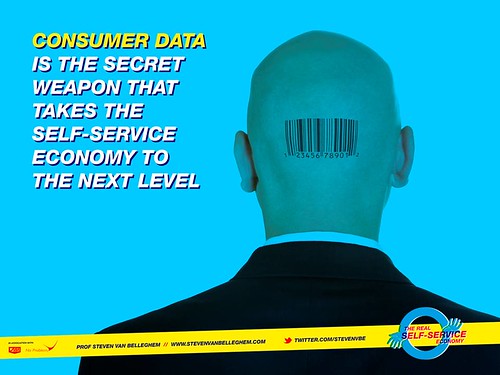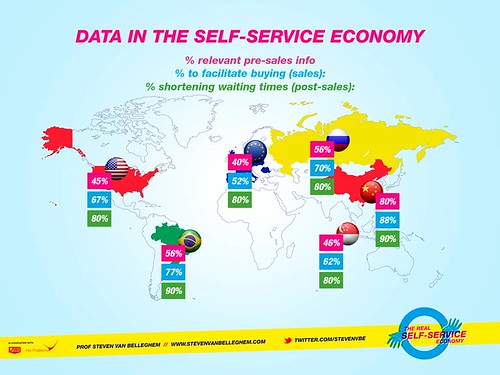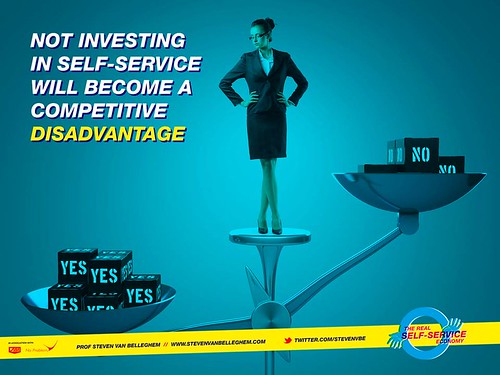These last few months I’ve been working on a worldwide study to try and answer this question. In collaboration with SSI (fieldwork partner) and No Problem! (translation partner), we conducted a survey on this topic in ten countries (five European countries plus the US, China, Russia, Brazil and Singapore).
Click here to view the full report. As always, the download is free of charge:
Customers are willing to share data as long as…
The overall conclusion is positive. Consumers are willing to share their data and are actually encouraging companies to use them. Of course, there’s an important “but” involved. If companies are going to use their data then the consumer expects to reap the rewards.
As a company it’s important to give careful consideration to the use of data in every phase of the consumer’s purchase process. The customers themselves see advantages in the use of data in the pre-sales, the sales as well as the post sales process.
Pre-sales:
- 48% would like to receive personalized offers
- 43% would like to receive bespoke promotions
- 33% are interested in personalized advertising
Sales:
- 62% want faster and improved purchase possibilities through the use of client data
Post sales:
- 48% want companies to be able to track data through various channels so they don’t have to repeat themselves
- 81% are quite willing to provide data to help cut waiting times
Consumers see no harm in surrendering their data as long as they stand to benefit from doing so. Especially in the post sales phase, the idea is to grant access to data in order to speed things up. Companies have to look for better ways of using the customer history to the customer’s advantage. In the pre-sales phase, the use of data largely boils down to increased relevance. As it happens, this is very interesting for companies as well because it makes for more accurate communication. In other words, there are plenty of opportunities for creating a win-win situation.
Emerging economies more receptive to the use of data
European consumers are the most hesitant when it comes to surrendering their data to companies. It’s not that they are against it but they are just being cautious. Consumers from Brazil, China, Russia, Singapore and the US are more open to sharing data. Dutch and German consumers are the most cautious of all European consumers whereas the UK, France and Belgium are more accepting of the use of data in the customer relationship.
The customer of the future is a do-it-yourselfer
The consumer of the future’s main concern is staying in control. Self-service will become the only type of service capable of meeting consumer demands. Nothing beats self-service. Investing in user-friendly self-service solutions should be high on any company’s priority list. Already, 70% of consumers expect companies to propose a self-service solution. Failing to do so will soon become a competitive disadvantage.
Learn from Amazon
For e-commerce players, self-service has always been a guiding principle. Their approach is based almost entirely on the consumer taking full control of the process. There is still a human safety net to fall back on but it is only used as a last resort.
Amazon.com is an expert at using consumer data throughout the purchase process. Prior to the actual purchase, consumers receive a slew of personalized emails. These emails usually promote related products in various ways, and at a heavy discount, too.
Near the end of the sales process, right before you pay for your order, your data are used to propose yet another new product. Throughout the purchase process, Amazon offers content that fits your profile. The more they learn about you, the better the offers.
As for after sales, this aspect of the sales process is constructed entirely around the concept of the self-service consumer. Nearly everything can be adjusted afterwards without the need for human contact. This example of the use of data not only benefits the consumer but – obviously – the company as well. Amazon scores top marks both for efficiency and for generating additional revenue through data and self-service.
The last question is especially interesting. How far will the government and other regulatory bodies allow us to go and, even more importantly, how far will consumers allow us to go?







